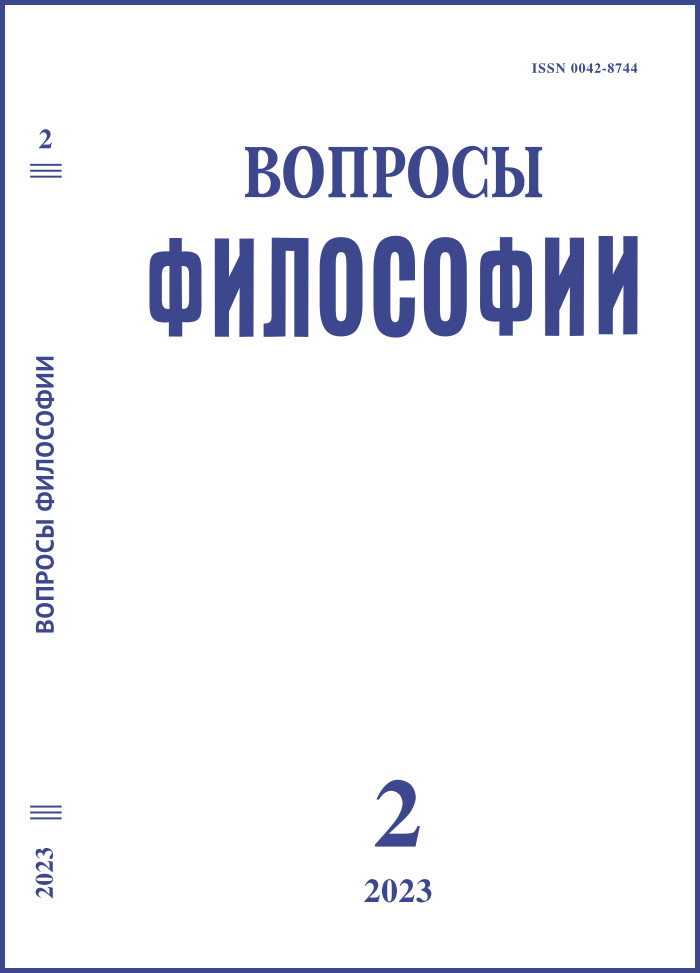Kant’s Philosophy of Pure Reason as a Speculative Foresight of Cosmism, Virtualization and Artificial Intelligence (Transcendental Digitalism Contra Telluric Realism)
DOI:
https://doi.org/10.21146/0042-8744-2023-2-201-209Keywords:
Kant, pure reason, transcendentalism, tellurism, being, nothing, technos, Postmodernism, virtualisation, cosmism, digitalism, humanism.Abstract
Kant’s transcendental idealism was the beginning of the end of the telluricall philosophy of Being and its replacement by the cosmological philosophy of Nothing. Possessing the maximum of possibilities, Nothing is the highest expression of a priori and digitalism. The ontological correlate of Nothing is the concept of the Cosmos as a designation of any spheres where there is no life, the Universe and the Metauniverse. I. Kant is the first fundamental philosopher, he can be considered a speculative harbinger of the computer science, virtualism and cosmism as: 1) care orientation (fly away) into the galactic lifeless reality, 2) creating a bit-atomic, entirely artificial reality on Earth, in the limit, its transformation into a dead planet. And postmodernism, as a humanitarian and speculative reflection of the beginning digital transformation of life into technos, humanism into transhumanism, transition of human consciousness into posthuman intelligence. The humanitarian significance of Kant's philosophy in its culture and antropological inconsistency as live Genus homo. The ideology of human survival can be the philosophy of telluric realism in the modality of phenomenological substantialism, geocentrism and the value anthropic principle.

